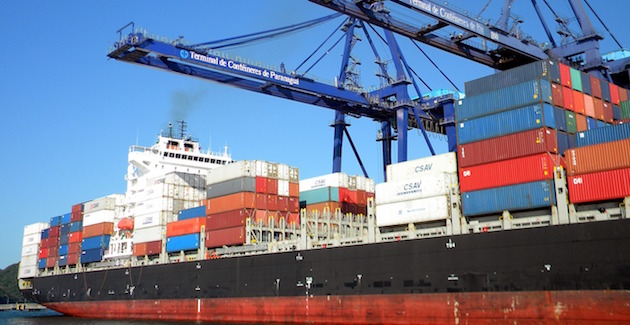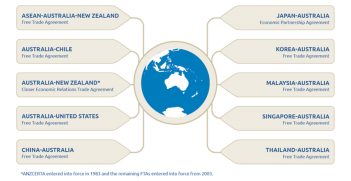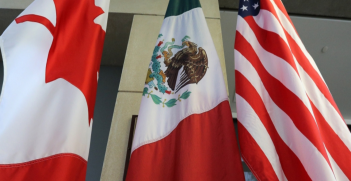Fair and free: The future of trade liberalisation

The past year has destabilised the business-as-usual trajectory for trade liberalisation: dissatisfaction with established positions is on the rise and politicians must respond effectively if confidence is to be restored. Given the disadvantages liberalisation exposes certain workers to, a return to stability depends on recognising these disadvantages and pursuing ‘fair and free’ outcomes for trade.
Economic protectionism has returned with force. With the emergence of anti-globalist narratives and policies worldwide, the future of trade has descended into uncertainty. Over the last year, we have seen the repudiation of the political establishment in favour of relatively extreme candidates fuelled by populist, nostalgic appeals to economic days past. We are witnessing the manifestation of the dissatisfaction of the middle class, of those who believe they have been disadvantaged by the pursuit of the free-trade agenda.
Political dogma says this rejection comes as a consequence of the decision to chase interconnectedness and interdependence over the last 30 years, a choice which has left these people economically abandoned. This, it is argued, has eroded their confidence in both the establishment and trade liberalisation. Ultimately, globalist hegemony is experiencing a crisis of confidence.
Restoring confidence in globalisation depends on understanding the nature of the confidence lost. Confidence is defined by the Oxford Dictionary as “the feeling or belief that one can have faith in or rely on someone or something”. As it relates to globalisation, confidence is the faith that trade liberalisation can reliably deliver its intended benefits. Naturally, this faith is based on the rhetoric of those who pursue the free-trade agenda and the observed outcomes.
The rhetoric used by institutions and politicians leaves a particular impression. As noted in the positions of the Liberal Party and the Department of Foreign Affairs and Trade, people expect trade to increase efficiency, enhance competitiveness, increase standards of living, create jobs, and benefit domestic businesses and consumers. While this is not incorrect, neither group mentions any of the potential detriments associated with liberalisation. By omission, these positions seem to depict trade as unambiguously beneficial.
Though this makes for a simpler narrative, it is ultimately reductive. As the International Monetary Fund (IMF) has recognised, technological progress and trade integration have been the key drivers of a decline in the labour share of income and production and a reduction in the welfare of the working class since the early 1990s. This comes as no surprise; economists have known for decades that trade liberalisation can create winners and losers.
While it is generally understood that trade creates aggregate economic benefits, the empirical evidence and economic theory show that these benefits come at a cost to certain sections of society. The workers in less efficient industries can suffer as nations specialise production within their area of comparative advantage, establish economies of scale within larger international markets, and compete against increasingly efficient producers.
Cumulatively, these changes force economic restructuring away from inefficient forms of production. Though much of the economy will see increased standards of living as a result of this, without assistance, other groups face a loss in welfare from restructuring costs, stemming from the pressure to relocate, re-skill, and re-educate.
Despite the clarity of these outcomes, it is only recently that the political mainstream has given them meaningful acknowledgement. Much of the newfound concern is reactionary, coming as a result of the worldwide surge in calls for economic protectionism or economic patriotism. The loss in welfare from liberalisation and the failure of governments to address the concerns of those affected drive this anti-globalist position. Remedying this trend and the loss of institutional confidence therefore requires reconciliation between political positions and the observed outcomes of trade, and action to address the inequity caused.
If possible, policy should to retain the benefits of liberalisation while correcting this issue; continuing business-as-usual policies will be an ineffective strategy. Increasing protectionism would also be inappropriate, as doing so would see the benefits of liberalisation sacrificed as a means of re-allocating society’s welfare. More efficient and equitable outcomes may exist. For example, facilitating effective restructuring and re-education would eliminate economic redundancy and promote advancement in the stock of knowledge capital.
As Joseph Stiglitz has argued, growth in knowledge capital can ensure long-run economic gains, due to its non-rivalrous nature. This approach may represent a way to benefit everyone while combating the issue at hand.
Alasdair Cannon is an undergraduate law/business (economics) student at Queensland University of Technology.
This article is published under a Creative Commons Licence and may be republished with attribution.





